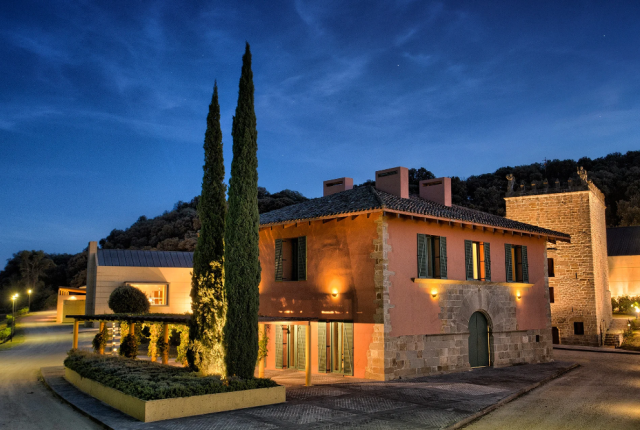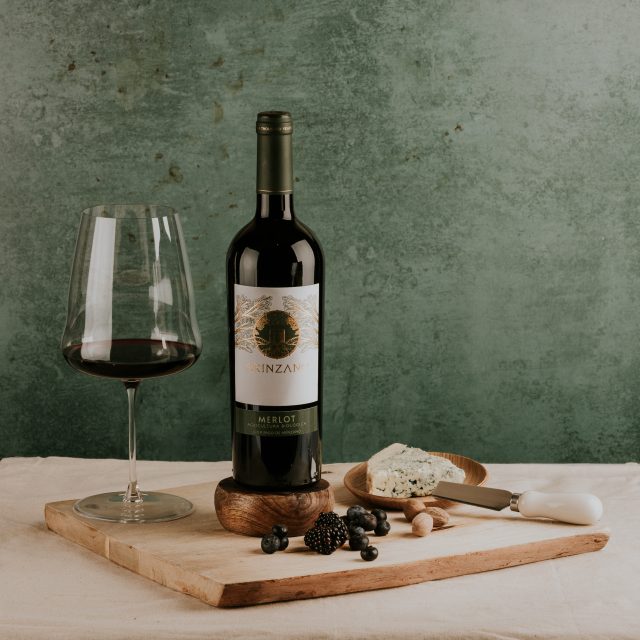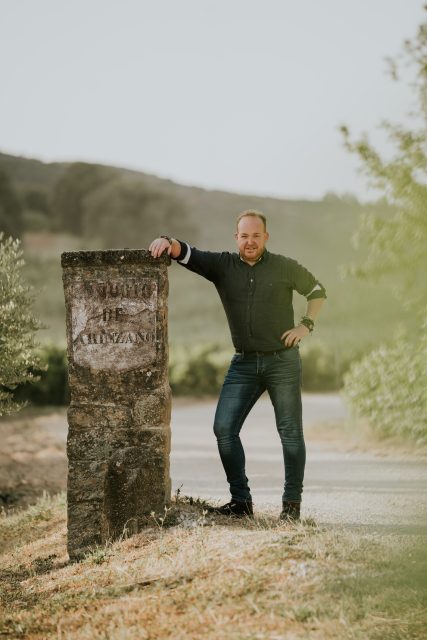This website uses cookies so that we can provide you with the best user experience possible. Cookie information is stored in your browser and performs functions such as recognising you when you return to our website and helping our team to understand which sections of the website you find most interesting and useful.
Arínzano’s award-winning wines demonstrate a winery proud of its heritage
In a history that stretches from medieval monks to Master-medallist wines, Arínzano champions heritage, terroir and sustainability in North Spain.

Sustainability is often summarised as taking care of the land. For any property, of any age, it is a means both to respect the natural world, mitigate negative environmental impacts and, hopefully, make better wine. Yet when, like Arínzano in Spain’s Navarra region, your heritage stretches back nearly a millennium, acting as custodians of the land is an essential duty. That message of sustainability to preserve heritage is one the producer keenly advocates, for instance in showcasing its award-winning wines at Prowein Düsseldorf 2024.
The property can trace its roots back to 1055, when Navarra’s king rewarded Sancho Fortuñones with a large estate. Its vines were tended first by monks, then by the local nobility and finally by winemaking families. Since 2015 it has been part of the Tenute del Mondo collection of boutique wineries around the world.
It is therefore a special heritage to conserve, but one which the landscape matches in prestige. The 350 hectare estate, of which 128ha are vineyards, sits in a river valley that channels cool winds from the Atlantic to temper the Spanish heat. The slopes, a mix of marl, sand, limestone and limonite, are ideal for the plantings of Tempranillo, Chardonnay and Merlot.
The estate is so remarkable, in fact, that it earned the designation Vino de Pago. Only 24 Spanish wineries have earned the denomination, as it indicates an estate distinctive enough to warrant a unique classification.
One way in which Arínzano justifies that classification is through its sustainable approach. Across its vineyards, biodiversity is a key concern. By protecting the hundreds of hectares not planted with vines, it maintains a vibrant, verdant enclave of biodiversity. Its program for the preservation of nature, in cooperation with the World Wildlife Fund, has both sustained that diversity and documented it.

Further work has pushed the producer towards organic viticulture. Its Merlot Agricultura Biológica uses a single plot, farmed organically to showcase the property in a velvety, barrique-aged red. In time it became a benchmark for Bordeaux varieties in Navarra. Along with the Arínzano Pureza Chardonnay 2021, that Merlot earned winemaker José Manuel Rodríguez a spot in this year’s Master Winemaker 100 guide. Indeed, it secured him the Best Organic Wine award.
A master at work
Rodriguez earned his place in this year’s guide by winning Master medals in two separate, blind-tasted competitions. He won them for the Arínzano Merlot Agricultura Biológica 2018 at the Global Organic & Vegan Wine Masters 2023 and for the Arínzano Pureza Chardonnay 2021 at the Global Chardonnay Masters 2023.
For this year’s guide, he spoke to db about proactivity, lessons from the vines and the best pairing for hot chocolate toast.

Describe your winemaking approach in no more than three words.
Respect. Identity. Balance.
What’s your favourite part of the job?
Harvest, fermentation and devatting: the moments when we create or see the different wines of the vintage being born.
Which aspect of the job keeps you awake at night?
I try not to let any aspect keep me awake at night. It is necessary to sleep and reset in order to be awake during the day, which is the time when I am most in contact with the wines.
What’s your go-to drink at the end of a long day?
A nice fresh Chardonnay while I’m cooking dinner.

What’s the best piece of advice you’ve ever been given?
The best advice I’ve been given is proactivity. Be judged for what you’ve done, not for not doing or not trying.
What was your greatest winemaking mistake?
Winemaking is an interpretation, so to talk about mistakes would be too drastic; we could talk instead about an erroneous interpretation at some point in the winemaking process. Perhaps the biggest mistake is keeping a wine in barrel for too long, allowing the wood to take over and spoiling the variety, origin, identity and balance.
What’s the most important winemaking lesson you’ve learned so far?
There are no absolute truths, no universal magic recipes. In each place, in each grape, in each terroir you have to study, know and interpret, to build patterns of processing, winemaking and ageing appropriate to the wine profile that the place reveals to you.
Which figure outside the world of wine inspires you?
Dr Mario Alonso Puig for his theories on happiness and ways of facing life.
Where would your fantasy vineyard be?
Cabo de Ajo on the Cantabrian coast overlooking the sea.
If you weren’t a winemaker, what would you be doing and why?
Probably some profession in which I could be a good host or a people pleaser. That could be catering for room service or even working for NGOs [non-governmental organisations], where I would feel fulfilled trying to help people.
What’s the most memorable food match you’ve had with one of your wines?
Hot chocolate toast, oil, pepper and organic Merlot.

What role does sustainability have to play in a Master-winning wine?
Sustainability is taught to us by the vines on a daily basis. They focus their vital existence on perpetuating their species, adapting, using the available natural resources in the right measure, balancing themselves in a natural way and giving back to nature and their guests part of their energy for a vital balance in their immediate environment. I think it is important that we copy their life patterns and philosophy, extrapolating them to each and every one of the stages until we take that grape to the bottle. It’s about adaptation, balance, respect and regeneration of the elements used in order to perpetuate our lives and theirs.
Which type of wine do you drink most regularly?
Still white wines.
Your home is on fire: which bottle do you save?
I couldn’t choose just one.
Visitors to ProWein Düsseldorf may find Arínzano’s award-winning wines in Hall 13 at stand A80.
Related news
Ribera del Duero challenges 'out of date' perceptions in UK market
Cava DO on target to become 100% organic by 2025
Ramón Bilbao joins exclusive club as it celebrates centenary

